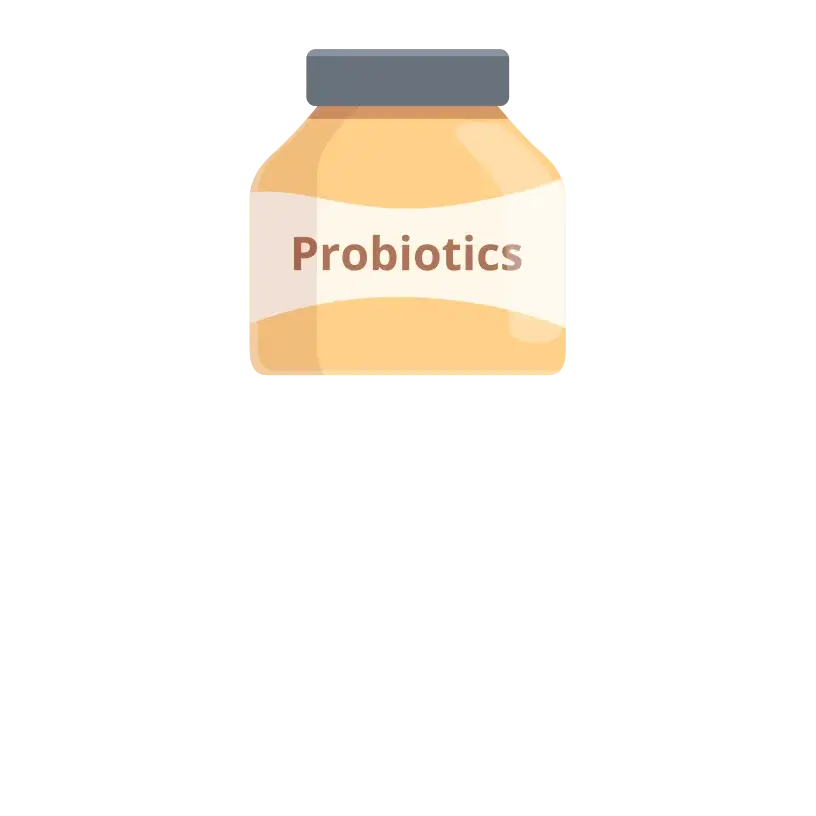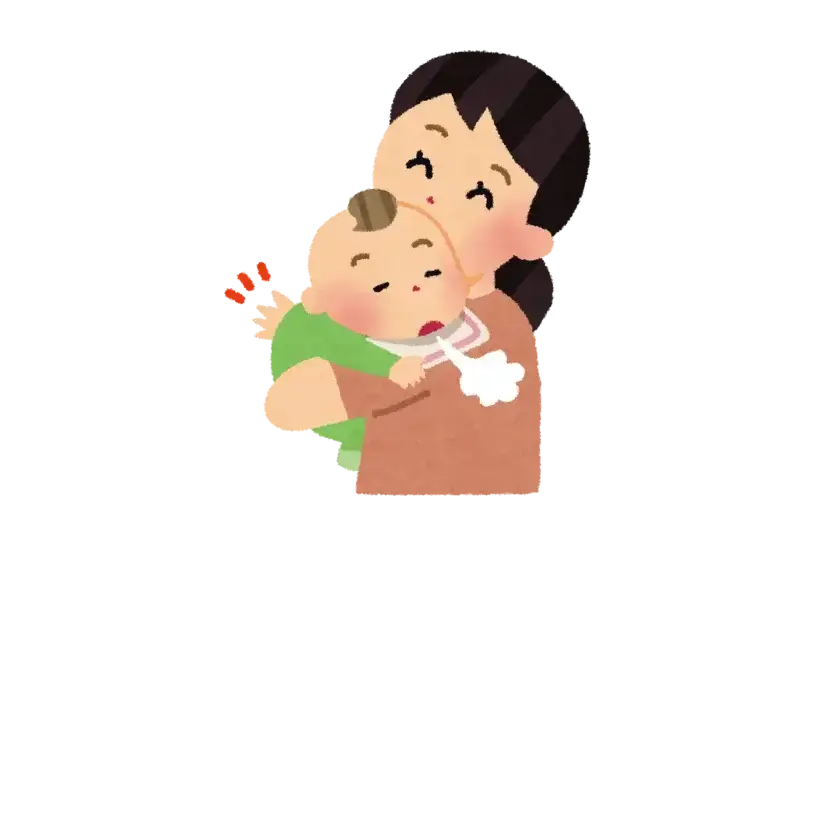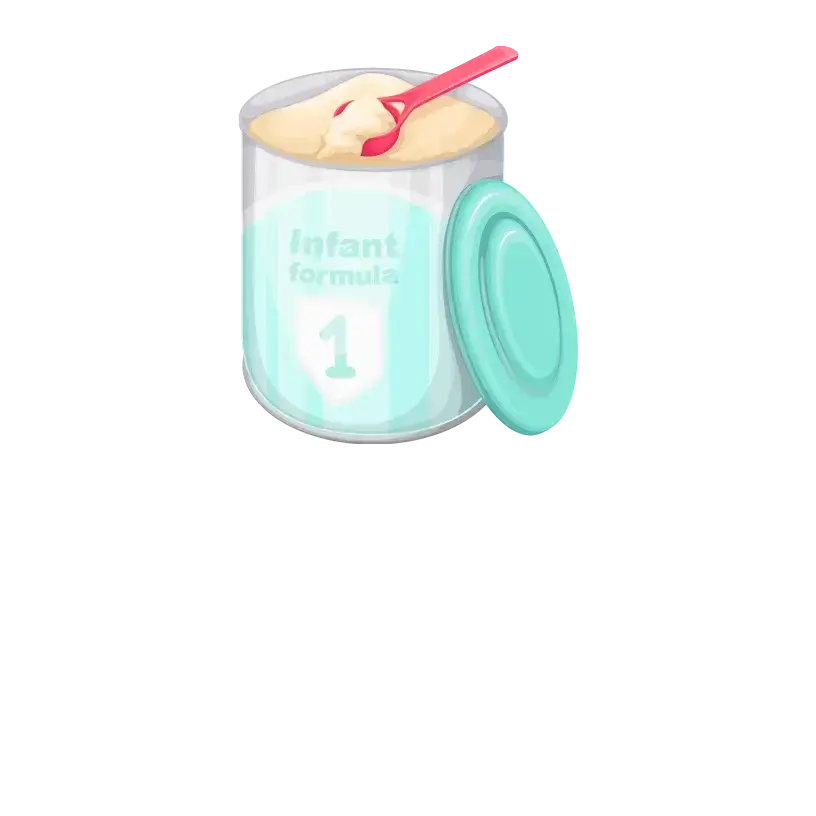Menu

As a parent, you know that babies cry—it’s their way of telling you they need something. Most of the time, a cuddle, a feeding, or a diaper change does the trick. But then there are those moments when your baby seems to cry non-stop, for hours on end, day after day. That’s when we talk about colic.
It’s tough, I know, but understanding colic can make a big difference. It helps you realise that it’s not because you’re doing something wrong—it’s just something some babies go through. And once you recognise it, you can start figuring out the best ways to help soothe your little one and get through those tough times together.
Colic is a frequent, prolonged and intense crying or fussiness in a healthy infant. Many doctors often use the “rule of three” description, established by paediatrician Morris A. Wessel, M.D., to describe colic. According to this rule, if a healthy baby cries for more than three hours a day, on more than three days a week, for over three weeks, they might be experiencing colic.
Colic, also known as excessive infant crying, is a challenging experience that affects about 15 to 20% of infants within the first three months of life.
According to the American Academy of Pediatrics, colic starts around 2 to 3 weeks of age. Colic typically reaches its peak intensity when babies are around 6 to 8 weeks old. Then, it gradually decreases, usually disappearing entirely by the time they are 3 to 4 months old.
Interestingly, babies with colic often experience their most intense crying episodes between 6:00 p.m. and midnight, which can be particularly challenging for parents who are already feeling exhausted at the end of the day. While coping with the constant crying may be incredibly stressful, it’s essential to remember that this phase is temporary and will eventually pass.
The National Institute of Child Health and Human Development notes that most infants grow out of colic by 3 or 4 months.
Keeping a close eye on your baby’s symptoms is crucial. If colic persists beyond four months, it could indicate an underlying health issue.
According to Johns Hopkins, most babies seldom display colic after six months.
Colic in babies remains somewhat of a mystery, as there is no definitive answer to what causes it, and there isn’t a specific test to diagnose it. It can be incredibly distressing for you to hear your baby cry incessantly, especially when you have already tended to all the usual needs like feeding, burping, and changing diapers.
To understand what might be causing the colic, consider all the potential reasons your baby might be showing signs of discomfort. By systematically ruling out different possibilities, you can hopefully identify triggers or patterns that can guide you in soothing your baby and providing relief.
A study in 2010 suggests colic as a normal part of your baby’s development as they adapt to the new sensations and experiences outside the womb, but overstimulation can trigger the symptoms. When your baby is awake for extended periods, trying to take in everything around them—the sights, sounds, and smells, they can become overwhelmed and reach their limit, leading to crying episodes.
This perspective suggests that colic may be a natural response as your baby adjusts to their surroundings and learns to regulate their emotions.
Based on research, it’s common for new parents to feel stressed and anxious, especially by the end of the day when fatigue sets in. Some experts suggest that a parent’s anxiety can affect their baby, making them feel stressed. Paediatricians believe babies may become colicky as a response to emotions like anxiety, excitement, and frustration.
However, it’s essential to recognise that caring for a colicky baby is naturally stressful, regardless of the parents’ stress levels. In other words, colic can happen to babies whose parents don’t feel overly stressed. This highlights the importance of providing support and understanding for you and your baby during this challenging time.
Research suggests that infant GERD (gastroesophageal reflux disease), a condition where stomach acid flows back up into the throat and mouth, can trigger episodes of fussiness in babies with colic, although it doesn’t directly cause colic.
Signs of GERD include frequent spitting up, difficulty eating, and irritability during and after feedings. The good news is that most babies outgrow GERD by age 1, and colic usually resolves long before then.
Studies indicate that mothers who smoke during or after pregnancy are at a higher risk of having babies with colic, and secondhand smoke could also play a role. However, the exact connection between cigarette smoke and colic remains unclear.
Nonetheless, for various health reasons, it’s crucial to avoid smoking and exposure to secondhand smoke around your baby.
According to Food Allergy Research and Education, Some babies can’t tolerate cow’s milk protein, which affects about 2.5% of kids under 3. But most children outgrow food allergies from cow’s milk by their first birthday.
Food allergies are thought to contribute to colic in babies because they can lead to uncomfortable symptoms. For example, if a baby is allergic to the cow’s milk protein in formula, they might cry a few hours after drinking it. Similarly, if a breastfed baby has a cow milk protein allergy, dairy products in the mother’s diet could cause colic in the baby.
Having a colicky baby can be challenging, even if you’re experienced as a parent. Doctors still aren’t sure why it happens or how to make it stop, so it can feel like you’re just trying to survive those crying spells.
It’s important to know that having a colicky baby doesn’t mean you’re doing anything wrong—it’s not about your parenting skills or your baby’s health. Eventually, your baby will outgrow it, and you’ll both be able to enjoy more peaceful and relaxed times together.
A study in 2010 suggests colic as a normal part of your baby’s development as they adapt to the new sensations and experiences outside the womb, but overstimulation can trigger the symptoms. When your baby is awake for extended periods, trying to take in everything around them—the sights, sounds, and smells, they can become overwhelmed and reach their limit, leading to crying episodes.
This perspective suggests that colic may be a natural response as your baby adjusts to their surroundings and learns to regulate their emotions.
Based on research, it’s common for new parents to feel stressed and anxious, especially by the end of the day when fatigue sets in. Some experts suggest that a parent’s anxiety can affect their baby, making them feel stressed. Paediatricians believe babies may become colicky as a response to emotions like anxiety, excitement, and frustration.
However, it’s essential to recognise that caring for a colicky baby is naturally stressful, regardless of the parents’ stress levels. In other words, colic can happen to babies whose parents don’t feel overly stressed. This highlights the importance of providing support and understanding for you and your baby during this challenging time.
Research suggests that infant GERD (gastroesophageal reflux disease), a condition where stomach acid flows back up into the throat and mouth, can trigger episodes of fussiness in babies with colic, although it doesn’t directly cause colic.
Signs of GERD include frequent spitting up, difficulty eating, and irritability during and after feedings. The good news is that most babies outgrow GERD by age 1, and colic usually resolves long before then.
Studies indicate that mothers who smoke during or after pregnancy are at a higher risk of having babies with colic, and secondhand smoke could also play a role. However, the exact connection between cigarette smoke and colic remains unclear.
Nonetheless, for various health reasons, it’s crucial to avoid smoking and exposure to secondhand smoke around your baby.
According to Food Allergy Research and Education, Some babies can’t tolerate cow’s milk protein, which affects about 2.5% of kids under 3. But most children outgrow food allergies from cow’s milk by their first birthday.
Food allergies are thought to contribute to colic in babies because they can lead to uncomfortable symptoms. For example, if a baby is allergic to the cow’s milk protein in formula, they might cry a few hours after drinking it. Similarly, if a breastfed baby has a cow milk protein allergy, dairy products in the mother’s diet could cause colic in the baby.
Having a colicky baby can be challenging, even if you’re experienced as a parent. Doctors still aren’t sure why it happens or how to make it stop, so it can feel like you’re just trying to survive those crying spells.
It’s important to know that having a colicky baby doesn’t mean you’re doing anything wrong—it’s not about your parenting skills or your baby’s health. Eventually, your baby will outgrow it, and you’ll both be able to enjoy more peaceful and relaxed times together.
Colicky cries can challenge even the most patient parents, but it’s crucial never to shake a baby to try to quiet them. Shaken baby syndrome can cause permanent brain damage and, in some cases, lead to death.

Research suggests reducing gas in your baby’s tummy could help ease their discomfort and crying. You can talk to your paediatrician about using gas drops, which work by breaking up gas bubbles and may relieve your baby’s symptoms.
While there’s no definitive proof that this treatment helps with colic, your doctor might recommend trying it to see if it makes your little one feel better.

This often helps reduce crying in some colicky babies by easing their tummy troubles. Probiotic bacteria naturally grow in the digestive tract and can promote intestinal health. While research on this is limited, it might be worth discussing with your paediatrician if probiotic drops could benefit your baby.

Lay your baby on their belly across your knees and gently rub their back to help release gas. You can also stroke their legs, back, arms, chest, and face for a calming massage.

Keeping your baby in a vertical position during feeding can minimise the amount of air they swallow, which might reduce gas and provide relief from colic. Burp your baby frequently to further reduce gas and potentially ease colic symptoms.

One of the most effective home remedies for colic is cuddling up with your baby. Skin-to-skin contact is especially soothing, but holding your baby close to your body can help them calm down even if you’re dressed. Using a baby carrier can also comfort your little one if you need a break or are out and about.

Switching from a regular formula to one specifically formulated for sensitive tummies or free from cow’s milk might help some formula-fed babies.

Research suggests that giving colicky babies hypoallergenic whey-hydrolyzed formula can reduce colic symptoms in some infants. However, it’s important to consult your doctor before switching formulas. Additionally, avoid using casein-hydrolyzed or partially hydrolyzed formulas as treatments for colic, as there isn’t sufficient evidence to support their effectiveness.
If you’re breastfeeding, it’s a good idea to discuss with your doctor whether you should temporarily eliminate certain foods from your diet. Some foods, like cabbage and cauliflower, acidic citrus fruits, and allergenic foods (such as dairy, soy, wheat, eggs, peanuts, tree nuts, and fish), can cause tummy troubles for your baby.
Your doctor can help determine if eliminating these foods could help ease your baby’s discomfort.

Some colicky babies may seem like they want to eat constantly, but it might not be because they’re hungry—it could be because sucking is soothing for them. If your baby seems hungry often and feeding them doesn’t satisfy them, offering a pacifier might help soothe them.
However, if you’re unsure whether your baby is getting enough to eat during feedings, it’s important to check with your doctor for guidance.

Swaddling your baby can give them comfort and security, which may help calm their tears. Warm a blanket in the dryer to swaddle, then wrap it snugly around your baby. The combination of warmth and the feeling of being wrapped up can be soothing for your little one, potentially helping to ease their distress.

If your baby is crying, try soothing them with gentle singing of a lullaby or playing soft classical music. Some babies also find comfort in the sounds of nature or the gentle whir of a fan. Experiment with different sounds to see what works best for your baby and helps them feel comforted and relaxed.

This is often promoted as an herbal remedy for issues like baby gas and colic, but there’s limited scientific evidence to support its effectiveness. While some parents swear by gripe water to calm a colicky baby, it’s essential to approach it with caution and consult with your paediatrician before using it.
Also, research has shown that administering gripe water does not appear to prevent infantile colic and may instead be linked to vomiting and constipation.

Research suggests reducing gas in your baby’s tummy could help ease their discomfort and crying. You can talk to your paediatrician about using gas drops, which work by breaking up gas bubbles and may relieve your baby’s symptoms.
While there’s no definitive proof that this treatment helps with colic, your doctor might recommend trying it to see if it makes your little one feel better.

This often helps reduce crying in some colicky babies by easing their tummy troubles. Probiotic bacteria naturally grow in the digestive tract and can promote intestinal health. While research on this is limited, it might be worth discussing with your paediatrician if probiotic drops could benefit your baby.

Lay your baby on their belly across your knees and gently rub their back to help release gas. You can also stroke their legs, back, arms, chest, and face for a calming massage.

Keeping your baby in a vertical position during feeding can minimise the amount of air they swallow, which might reduce gas and provide relief from colic. Burp your baby frequently to further reduce gas and potentially ease colic symptoms.

One of the most effective home remedies for colic is cuddling up with your baby. Skin-to-skin contact is especially soothing, but holding your baby close to your body can help them calm down even if you’re dressed. Using a baby carrier can also comfort your little one if you need a break or are out and about.

Switching from a regular formula to one specifically formulated for sensitive tummies or free from cow’s milk might help some formula-fed babies.

Research suggests that giving colicky babies hypoallergenic whey-hydrolyzed formula can reduce colic symptoms in some infants. However, it’s important to consult your doctor before switching formulas. Additionally, avoid using casein-hydrolyzed or partially hydrolyzed formulas as treatments for colic, as there isn’t sufficient evidence to support their effectiveness.
If you’re breastfeeding, it’s a good idea to discuss with your doctor whether you should temporarily eliminate certain foods from your diet. Some foods, like cabbage and cauliflower, acidic citrus fruits, and allergenic foods (such as dairy, soy, wheat, eggs, peanuts, tree nuts, and fish), can cause tummy troubles for your baby.
Your doctor can help determine if eliminating these foods could help ease your baby’s discomfort.

Some colicky babies may seem like they want to eat constantly, but it might not be because they’re hungry—it could be because sucking is soothing for them. If your baby seems hungry often and feeding them doesn’t satisfy them, offering a pacifier might help soothe them.
However, if you’re unsure whether your baby is getting enough to eat during feedings, it’s important to check with your doctor for guidance.

Swaddling your baby can give them comfort and security, which may help calm their tears. Warm a blanket in the dryer to swaddle, then wrap it snugly around your baby. The combination of warmth and the feeling of being wrapped up can be soothing for your little one, potentially helping to ease their distress.

If your baby is crying, try soothing them with gentle singing of a lullaby or playing soft classical music. Some babies also find comfort in the sounds of nature or the gentle whir of a fan. Experiment with different sounds to see what works best for your baby and helps them feel comforted and relaxed.

This is often promoted as an herbal remedy for issues like baby gas and colic, but there’s limited scientific evidence to support its effectiveness. While some parents swear by gripe water to calm a colicky baby, it’s essential to approach it with caution and consult with your paediatrician before using it.
Also, research has shown that administering gripe water does not appear to prevent infantile colic and may instead be linked to vomiting and constipation.
If you observe any of these signs, it’s essential to contact your doctor for further evaluation and guidance.
You may suspect your baby has colic if they frequently appear uncomfortable, scrunch up their bodies and hands, and cry intensely from 6 p.m. to midnight, regardless of their activity. These cries are often louder and higher-pitched than normal, causing stress as you struggle to calm your baby down.
If you believe your baby’s crying exceeds normal levels and suspect colic, it’s essential to consult your paediatrician. They can examine your child and ask questions to rule out other conditions.
If your baby is struggling to sleep due to colic, you can try the following methods:
Since scientists are uncertain about the cause of colic, no known methods exist to prevent it.
While witnessing a colic episode can be distressing, especially for new parents, it’s important to know that it doesn’t harm your baby’s health. Fortunately, babies with colic typically outgrow it over time. Most often, colic resolves independently when your baby reaches 3 to 4 months of age. This phase is temporary; you and your baby will get through it with patience and support.
While some over-the-counter gas medicines, like simethicone and dicyclomine, are marketed to reduce colic symptoms, there isn’t substantial research supporting their effectiveness. Therefore, it’s essential to exercise caution and consult your paediatrician before giving any medications to your baby, especially if they’re experiencing colic. Your paediatrician can guide you in the safest and most appropriate action for managing your baby’s colic symptoms.
You may suspect your baby has colic if they frequently appear uncomfortable, scrunch up their bodies and hands, and cry intensely from 6 p.m. to midnight, regardless of their activity. These cries are often louder and higher-pitched than normal, causing stress as you struggle to calm your baby down.
If you believe your baby’s crying exceeds normal levels and suspect colic, it’s essential to consult your paediatrician. They can examine your child and ask questions to rule out other conditions.
If your baby is struggling to sleep due to colic, you can try the following methods:
Since scientists are uncertain about the cause of colic, no known methods exist to prevent it.
While witnessing a colic episode can be distressing, especially for new parents, it’s important to know that it doesn’t harm your baby’s health. Fortunately, babies with colic typically outgrow it over time. Most often, colic resolves independently when your baby reaches 3 to 4 months of age. This phase is temporary; you and your baby will get through it with patience and support.
While some over-the-counter gas medicines, like simethicone and dicyclomine, are marketed to reduce colic symptoms, there isn’t substantial research supporting their effectiveness. Therefore, it’s essential to exercise caution and consult your paediatrician before giving any medications to your baby, especially if they’re experiencing colic. Your paediatrician can guide you in the safest and most appropriate action for managing your baby’s colic symptoms.
1. American Academy of Pediatrics: Crying and colic
2. American Academy of Pediatrics: Hypoallergenic Infant Formulas
3. American Association of Neurological Surgeons: Shaken Baby Syndrome
4. Calming Colic Christian Bates: A mothers stress can pass to her baby and increase crying and colic
5. Cleveland Clinic: Colic
6. Food Allergy Research and Education: Milk Allergy
7. Healthychildren: Colic Relief Tips for Patents
8. Indrio, F., Riezzo, G., Raimondi, F., Di Mauro, A. and Francavilla, R., 2013. Gut motility alterations in neonates and young infants: relation to colic? Journal of pediatric gastroenterology and nutrition, 57, pp.S9-S11.
9. Jain, K., Gunasekaran, D., VenKateSh, C. and Soundararajan, P., 2015. Gripe water administration in infants 1-6 months of age-a cross-sectional study. Journal of Clinical and Diagnostic Research: JCDR, 9(11), p.SC06.
10. Johns Hopkins Medicine: Colic
11. Kaley, F., Reid, V. and Flynn, E., 2011. The psychology of infant colic: A review of current research. Infant Mental Health Journal, 32(5), pp.526-541.
12. National Library of Medicine: Colic in infants
13. National Library of Medicine: Environmental Tobacco Smoke: the Colic Connection
14. National Library of Medicine: The Controversial Role of Food Allergy in Infantile Colic: Evidence and Clinical Management
15. National Institute of Child Health and Human Development: What are some of the basics of infant health
16. Roberts DM, Ostapchuk M, O’Brien JG. Infantile colic. Am Fam Physician. 2004 Aug 15;70(4):735-40. PMID: 15338787
© Mindsmaking 2024